Making the decision to transition your primary residence into a long-term rental property is a significant step in real estate investment. This decision can offer substantial financial benefits, but it also comes with its own set of challenges and responsibilities. If you’re considering this move, it’s essential to approach it with a clear understanding of what is involved. This guide will walk you through the key considerations and actionable steps needed to make the transition as smooth and successful as possible.
1. Assessing Your Motivation and Financial Goals
Before embarking on the transition, it’s important to clarify your reasons for renting out your primary residence. Whether you’re looking to generate passive income, hold the property for future appreciation, or simply need to relocate, understanding your goals will help you plan effectively.
Consider the Financial Implications
Renting out your home can provide a steady stream of income, but it’s crucial to weigh this against the costs involved. Start by calculating the potential rental income and compare it to your mortgage payments, property taxes, insurance, and maintenance costs. The goal is to ensure that the rental income covers these expenses and leaves you with a profit.
Assess Property Appreciation
One of the advantages of holding onto a property as a rental is the potential for long-term appreciation. While this is not guaranteed, understanding the market conditions in your area will help you predict whether the property will increase in value over time. If the local real estate market is on an upward trajectory, keeping the home as a rental could provide both steady income and the opportunity for future capital gains.
2. Understanding the Legal and Financial Requirements
Before turning your home into a rental property, you need to familiarize yourself with local laws and regulations governing rental properties. These laws can vary greatly by location, so it’s essential to understand both the state and local rules that will apply to your property.
Review Your Mortgage Terms
If you currently have a mortgage on your home, check the terms of your loan. Some mortgage agreements include clauses that require you to live in the home for a specified period or may prohibit renting out the property without prior approval from the lender. Failing to adhere to these terms could lead to penalties or even foreclosure.
Investigate Local Zoning Laws and Regulations
Zoning laws are crucial when converting a primary residence into a rental property. These regulations determine whether or not you can legally rent out your home and under what conditions. Some areas may have restrictions on short-term rentals, or they may require specific licenses or permits for long-term rentals. Consulting with a real estate attorney or property management expert can help ensure you’re compliant with all local laws.
Landlord-Tenant Laws
As a landlord, you’ll need to understand your responsibilities and obligations under landlord-tenant laws. These laws govern areas such as lease agreements, security deposits, eviction processes, and maintenance duties. Familiarizing yourself with these regulations will help protect you from legal disputes with tenants and ensure that you’re fulfilling your duties as a landlord.
3. Determining the Right Rental Strategy
There are several rental strategies to choose from, each with its own set of benefits and challenges. The strategy you select should align with your financial goals and the amount of time and effort you’re willing to invest.
Long-Term vs. Short-Term Rentals
A key decision is whether to pursue a long-term rental (typically 12 months or more) or a short-term rental (like those listed on Airbnb or VRBO). Each option comes with different benefits and responsibilities.
Long-Term Rentals: A long-term rental provides steady, predictable income with relatively low turnover. In this scenario, you’ll typically sign a lease agreement with the tenant for a year or more. While long-term rentals offer stability, they may not yield as high a return as short-term rentals. However, the level of effort required for managing long-term tenants is usually less compared to managing short-term guests.
Short-Term Rentals: Short-term rentals have the potential for higher returns, especially if your home is located in a desirable tourist destination. However, managing a short-term rental can be time-consuming, as it requires frequent cleaning, guest communication, and ongoing maintenance. If you are willing to put in the effort, this can be a lucrative option.
Market Research
Research the rental market in your area to determine which strategy would be the most profitable. If your home is in a popular tourist location, a short-term rental may be more profitable. However, if you’re in a more residential area, a long-term rental could be a better choice.
4. Preparing Your Home for Rent
Once you’ve decided on the rental strategy, the next step is to prepare your property for tenants. Proper preparation can help attract reliable tenants and ensure that your property stays in good condition.
Deep Clean and Repair
Before listing your property for rent, make sure it’s thoroughly cleaned and in excellent condition. Consider repainting walls, fixing any plumbing or electrical issues, and replacing outdated appliances. The more appealing and functional the property is, the easier it will be to attract tenants and secure a higher rental price.
Safety and Security
Ensure that your property is safe for tenants. Install smoke detectors, carbon monoxide detectors, and ensure that all locks and windows are secure. In some cases, you may also need to comply with specific safety codes, such as providing fire extinguishers or ensuring that staircases have proper railings. These steps are not only important for tenant safety but are also often required by law.
Set Up Utilities and Maintenance Systems
Decide whether you’ll include utilities in the rent or if tenants will be responsible for paying them. In some markets, tenants prefer to manage their own utilities, while in others, it may be more attractive for landlords to include utilities in the rent. Also, ensure you have a system in place for handling repairs and maintenance requests. Tenants will appreciate quick responses to maintenance issues, which can also help preserve the property’s value.
5. Setting a Competitive Rent Price
Pricing your property correctly is essential to attracting tenants while also ensuring that the rental income covers your costs. Research rental rates for similar properties in your area to gauge a competitive price.
Factors to Consider
- Location: Rental rates can vary significantly depending on the neighborhood. Research rental listings for comparable properties nearby.
- Size and Condition of the Property: Larger homes or properties with more modern amenities often command higher rent prices.
- Market Demand: Pay attention to the rental market’s supply and demand. If there are many vacant properties in the area, you may need to lower your price to remain competitive.
Use Online Tools
There are various online tools and rental websites that can help you determine the appropriate rental price. Websites like Zillow and Rentometer allow you to input property details and compare rent prices in your area.

Get a Free Rental Analysis
Want to know how much your home will rent for? We’ll send you a free rental report!
6. Creating a Solid Lease Agreement
A well-drafted lease agreement is essential for protecting your interests as a landlord and clearly outlining your tenants’ responsibilities. This document sets the foundation for a positive landlord-tenant relationship and helps prevent misunderstandings.
Essential Elements of a Lease Agreement
Your lease agreement should include, at a minimum, the following elements:
- Rental Terms: Specify the rental price, payment due dates, and acceptable payment methods. Make it clear whether utilities are included in the rent or if tenants are responsible for paying them separately.
- Lease Duration: Clearly state the start and end dates of the lease. For long-term rentals, this is typically 12 months, but it can vary depending on your preferences and market demand.
- Security Deposit: Define the amount of the security deposit, typically one to two months’ rent, and explain the conditions under which it will be refunded. Be sure to comply with local laws regarding security deposit limits and return timelines.
- Maintenance Responsibilities: Outline who is responsible for property maintenance. As a landlord, you may be responsible for major repairs (e.g., plumbing, HVAC), while tenants should handle minor issues (e.g., changing lightbulbs, lawn care).
- Pet Policy: Specify whether pets are allowed, and if so, any restrictions (e.g., breed, size). Many landlords choose to charge an additional pet deposit or a higher monthly rent for tenants with pets.
- Rules and Regulations: Include any specific rules you expect tenants to follow, such as noise restrictions, smoking policies, and parking arrangements.
Legal Considerations
Before finalizing your lease agreement, ensure it complies with local landlord-tenant laws. This includes clauses related to tenant rights, eviction procedures, and the return of security deposits. Consider consulting with a real estate attorney to ensure that your lease agreement is legally sound and that your rights as a landlord are protected.
7. Finding and Screening Tenants
One of the most critical steps in transitioning your primary residence to a rental property is finding reliable tenants. The right tenants will pay rent on time, take care of the property, and follow the terms of the lease. Here’s how you can find and screen tenants effectively.
Advertising Your Rental Property
The first step in attracting tenants is advertising your rental property. There are several platforms where you can list your property, including:
- Online Rental Websites: Websites like Zillow, Craigslist, Apartments.com, and Rent.com are popular places to list rental properties. These platforms allow you to include detailed descriptions, photos, and pricing information.
- Social Media: Many landlords use social media platforms like Facebook Marketplace to advertise rental properties. These platforms often reach a local audience and can be an affordable way to find tenants.
- Real Estate Agents: If you prefer not to manage the process yourself, consider working with a real estate agent who specializes in rentals. They can help market your property and handle the tenant search for you.
Tenant Screening Process
Once you start receiving inquiries, it’s crucial to screen potential tenants carefully. A thorough screening process helps ensure that you select responsible tenants who will respect your property and pay rent on time. Here are some key components of the tenant screening process:
- Application Form: Have interested tenants fill out a rental application. This form should request basic information such as their name, contact details, employment history, and rental history.
- Credit Check: A credit check will give you insight into the tenant’s financial responsibility. Ideally, you want tenants with good credit, as this indicates their ability to pay rent consistently. You can use services like TransUnion, Experian, or RentPrep to conduct background checks.
- Background Check: A background check can provide information about any criminal history, evictions, or bankruptcies. It’s important to ensure that your tenants do not have a history of behavior that could lead to legal or property issues.
- References: Ask for references from previous landlords, employers, or personal contacts. Speaking with former landlords will give you insight into the tenant’s behavior and reliability.
Red Flags to Watch Out For
During the tenant screening process, be on the lookout for red flags that may indicate problematic tenants, such as:
- Unverifiable Information: If a tenant is reluctant to provide references or employment information, this could be a sign of dishonesty.
- Frequent Moves: A history of moving frequently without clear explanations may indicate instability or issues with previous rental properties.
- Poor Credit or Background History: While a single financial setback isn’t necessarily a deal-breaker, a pattern of poor credit or eviction history could indicate that the tenant may struggle to meet their rental obligations.
8. Managing Your Rental Property
Once you’ve found the right tenant and signed the lease agreement, it’s time to focus on managing your property. Effective property management can ensure a smooth experience for both you and your tenant, while also helping you maintain the value of your investment.
Regular Maintenance and Inspections
It’s essential to keep your rental property well-maintained, which not only protects its value but also encourages tenants to take care of it. Schedule regular maintenance and inspections to ensure everything is in working order. Here are some things to keep in mind:
- Routine Inspections: Periodically inspect the property to identify any maintenance issues before they become major problems. Depending on the lease agreement, you may need to provide notice to tenants before entering the property for inspections.
- Address Maintenance Requests Promptly: Make sure to respond to tenant maintenance requests quickly. If something is broken or needs attention, resolve the issue as soon as possible to maintain a good relationship with your tenants.
- Use Reliable Contractors: Work with trusted contractors for repairs and maintenance. Keep a list of recommended professionals, such as plumbers, electricians, and landscapers, to ensure you can quickly address any issues.
Tenant Communication
Maintaining clear and open communication with your tenants is key to a successful landlord-tenant relationship. Consider the following strategies:
- Clear Expectations: From the start, make sure your tenants understand your expectations for the property. This includes how to handle maintenance requests, rent payments, and rules regarding noise or pets.
- Responsive Communication: Be responsive to tenant inquiries and issues. Providing timely responses to emails or phone calls demonstrates professionalism and helps build trust with tenants.
- Document Everything: Keep records of all communication with your tenants, including emails, phone calls, and maintenance requests. This documentation can be invaluable if disputes arise.
Handling Rent Payments
Managing rent payments is another crucial aspect of property management. Many landlords choose to collect rent payments electronically to ensure they’re paid on time and to minimize administrative effort. Consider setting up a secure online payment system for tenants, or using property management software to automate billing and payment tracking.

9. Handling Difficult Situations with Tenants
No landlord wants to deal with difficult tenants, but it’s an inevitable part of property management. Whether it’s late rent payments, property damage, or other concerns, having a clear strategy for resolving issues is essential.
Addressing Late Rent Payments
Late rent payments are one of the most common issues landlords face. To prevent this from becoming a recurring problem, take the following steps:
- Late Fee Clause: Ensure that your lease agreement includes a clause outlining late fees for missed payments. A reasonable late fee can help incentivize timely payments and cover any additional administrative costs incurred by late payments.
- Grace Period: Many landlords offer a grace period (e.g., 3-5 days) before enforcing late fees or taking further action. Make sure to clearly communicate this to your tenants, so they know when payments are expected and when late fees will be applied.
- Proactive Communication: If a tenant is late with a payment, contact them immediately. Sometimes, issues arise that tenants are willing to resolve quickly once reminded. Be polite but firm in your communications, and ask when you can expect the payment.
- Eviction Process: If a tenant fails to pay despite repeated notices, you may need to initiate eviction proceedings. Understand the local laws surrounding evictions and follow them carefully to avoid potential legal complications. Keep records of all communication and payments for documentation in case of a legal dispute.
Dealing with Property Damage
When tenants move out, it’s not uncommon to find that they’ve caused damage to the property. To handle this issue:
- Security Deposit: The security deposit should be used to cover any damages beyond normal wear and tear. Clearly document any damage and provide tenants with an itemized list of deductions.
- Routine Inspections: Conduct regular inspections during the lease term (with proper notice) to catch any damage early and address it before it escalates.
- Dispute Resolution: If tenants dispute the damage charges, be prepared to negotiate. Having clear documentation, including photos of the damage, can help resolve disputes quickly.
Conflict Resolution
Effective conflict resolution is key to maintaining a positive relationship with your tenants. If issues arise, approach them calmly and professionally:
- Stay Professional: When dealing with a problem, remain objective and avoid getting emotionally involved. Treat your tenant with respect, and try to understand their perspective.
- Clear Communication: Use clear, written communication when addressing issues. This ensures that both parties are on the same page and minimizes the risk of misunderstandings.
- Mediation Services: In cases of ongoing disputes, consider using a neutral third party, such as a mediator, to help resolve the issue before it escalates to legal action.
10. Understanding the Tax Implications of Renting Your Property
As a new landlord, it’s important to understand how renting out your property will affect your taxes. Rental income is taxable, but there are deductions and credits that can help reduce your tax liability.
Rental Income and Deductions
The IRS considers rental income as taxable, but you can deduct certain expenses related to managing and maintaining your rental property. Here are some common deductions for landlords:
- Mortgage Interest: If you still have a mortgage on the property, you can deduct the interest you pay on the loan as a rental expense.
- Property Taxes: Property taxes are another deductible expense.
- Insurance: The cost of landlord insurance or any property insurance is deductible.
- Repairs and Maintenance: Costs associated with property repairs and regular maintenance (e.g., plumbing, HVAC repairs) can be deducted from your rental income.
- Property Management Fees: If you hire a property management company, the fees they charge are deductible.
Depreciation
One of the most valuable tax advantages of owning rental property is depreciation. Depreciation allows you to deduct the cost of your property over time, even if the property is appreciating in value. The IRS provides a standard depreciation period for residential properties of 27.5 years.
Filing Your Taxes
When it’s time to file your taxes, you’ll need to report your rental income and expenses on Schedule E of your tax return. If you’re unsure about how to file or which deductions apply to you, consider consulting with a tax professional who specializes in real estate. They can help you maximize your deductions and ensure that you comply with tax laws.
11. Preparing for the Future: Scaling Your Rental Business
As you gain experience managing your first rental property, you may decide to expand your real estate portfolio by purchasing additional properties. Here are some tips for scaling your rental business:
Diversify Your Property Portfolio
Investing in multiple properties in different locations or property types (e.g., single-family homes, duplexes, or apartments) can help mitigate risks associated with the rental market. If one property becomes vacant or requires costly repairs, your other properties can continue generating income.
Use Property Management Software
As your portfolio grows, managing multiple properties manually becomes challenging. Property management software can help automate tasks such as rent collection, maintenance requests, and financial tracking. Some popular software options include Buildium, AppFolio, and Rentec Direct.
Work with Professionals
As you scale, you may find it beneficial to work with property management companies, real estate agents, or attorneys to handle the increased workload. Property managers can handle tenant relations, maintenance, and rent collection, while real estate agents can help you find new investment properties.
Build a Network
Networking with other landlords, real estate investors, and professionals in the industry can help you stay informed about market trends, new regulations, and investment opportunities. Join local real estate investment groups or online forums to expand your network and share insights.
Final Thoughts
Transitioning from a primary residence to a long-term rental property can be a rewarding experience, both financially and personally. By following the steps outlined in this guide—preparing your home, creating a solid lease agreement, finding and screening tenants, managing your property effectively, and understanding the tax implications—you can set yourself up for success as a landlord. Remember that property management requires ongoing effort, but with the right knowledge and strategies, you can build a profitable rental business that provides long-term income.
Suggested Helpful links:
How to Choose the Right Property Management Company in Palm Beach County
Long-Term Rental Property Management Palm Beach
The Benefits of Using a Local Property Management Company in Jupiter, FL


